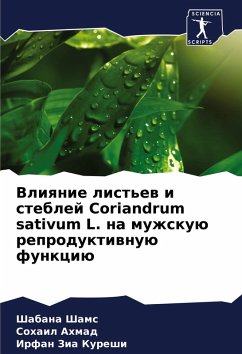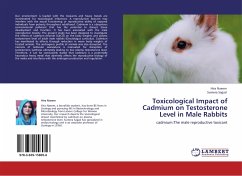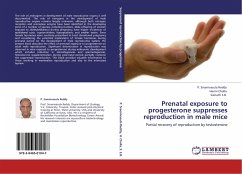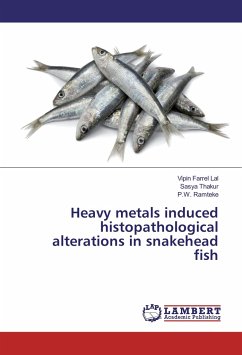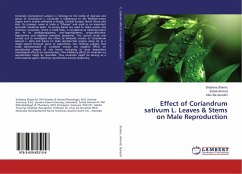
Effect of Coriandrum sativum L. Leaves & Stems on Male Reproduction
Versandkostenfrei!
Versandfertig in 6-10 Tagen
37,99 €
inkl. MwSt.

PAYBACK Punkte
19 °P sammeln!
Coriander (Coriandrum sativum L.) belongs to the family of Apiceae and genus of Coriandrum L. Coriander is indigenous to the Mediterranean region and is widely cultivated in Russia, Central Europe, North Africa and Asia. Its common name in India is "Dhanya" and used as an important ayurvedic medicinal plant. Its young leaves are used to make sauces and chutneys. Coriander, which is small herb, is considered as medicinal plant due to its antihyperglycemic, anti-hyperlipidemic, antiproliferative, hypotensive and digestive stimulant properties. The current study was carried out to investigate the...
Coriander (Coriandrum sativum L.) belongs to the family of Apiceae and genus of Coriandrum L. Coriander is indigenous to the Mediterranean region and is widely cultivated in Russia, Central Europe, North Africa and Asia. Its common name in India is "Dhanya" and used as an important ayurvedic medicinal plant. Its young leaves are used to make sauces and chutneys. Coriander, which is small herb, is considered as medicinal plant due to its antihyperglycemic, anti-hyperlipidemic, antiproliferative, hypotensive and digestive stimulant properties. The current study was carried out to investigate the effect of ethanolic extract of Coriandrum sativum L. stem and leaves on male reproductive organs using rat as a model system through series of experiment. Our findings suggest that orally administration of coriander extract has negative effect on reproductive organs of rats hence indicating its dose dependent toxicological effects on reproduction. This inhibitory effect of coriander on reproduction might be reversible. Thus coriander might be serving as a contraceptive agent, blocking reproductive activity temporary.







